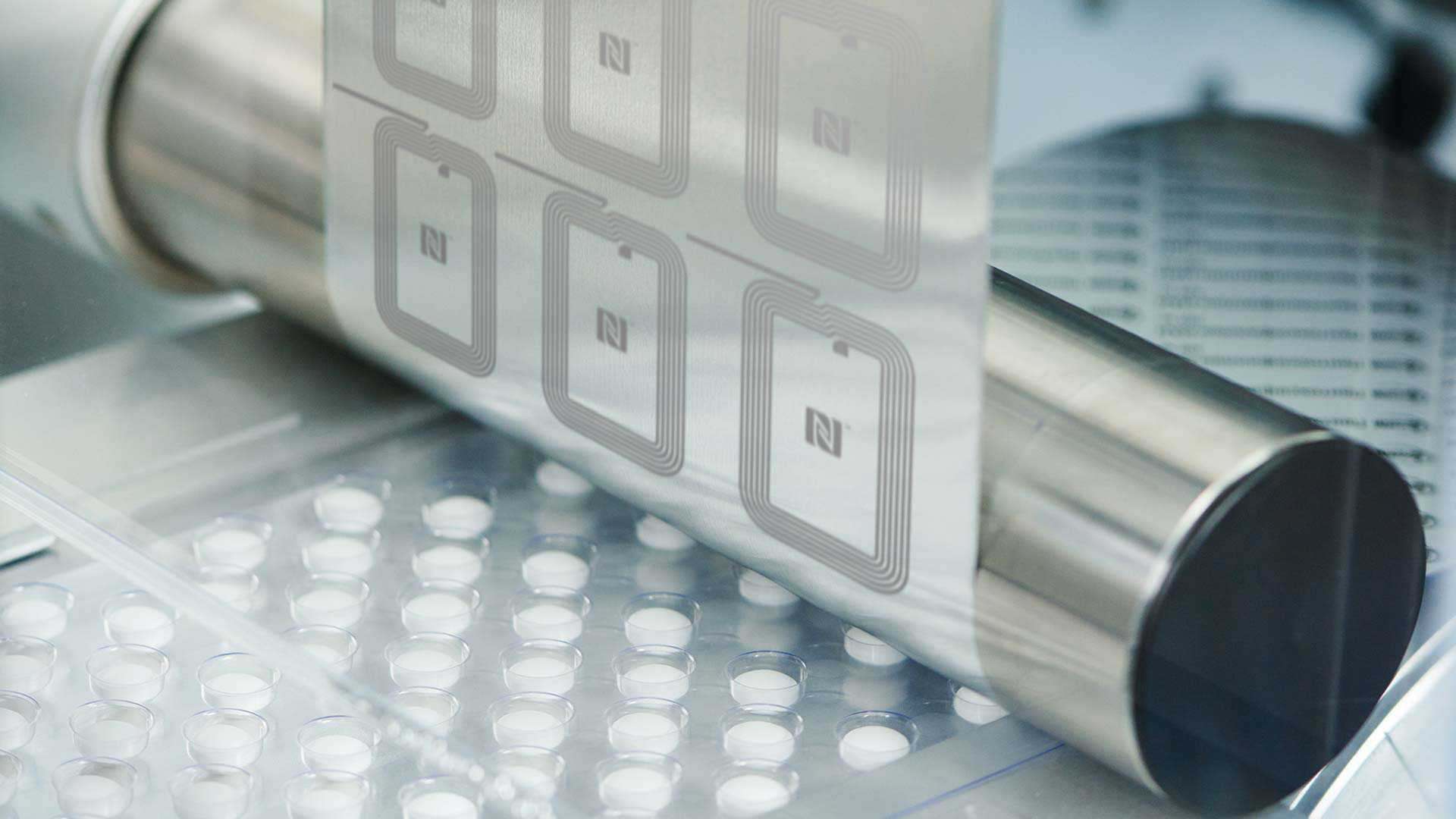ReMediES
Improving the pharmaceutical supply chain

Enabling intelligent pharmaceutical packaging
CPI worked as part of the UK-based ReMediES (RE-configuring MEDIcines End-to-end Supply) consortium to develop product concepts that demonstrate the potential for printable electronics in the pharmaceutical supply chain and develop technology to improve the performance of blister packaging making the commercialisation of intelligent pharmaceutical packaging possible.

“ You’re not just building in tracking of where (the drug) is, but whether there has been a change of pressure or temperature, or perhaps, whether something became loose during shipment. You can look at a host of supply chain issues around handling and environmental conditions and assess the integrity of the product as a result of how it has been handled. ”
Achievements
Inputs
- Facilities and equipment investment
- Technical knowledge and expertise
- Research and development
- Process validation
Outputs
- New job creation
- Development of product concepts for smart labels
- Completion of real-world trials
- Development of a mobile phone app capable of transmitting real-time data via the Internet of Things to monitor temperature and humidity of products
Outcomes
- Potential to reduce waste and more efficient supply of drugs
- Accelerated TRL of smart labelling
- Increased sector knowledge and engagement, and understanding of smart labelling
- Stronger presence within the Medicines Manufacturing Industry Partnership
- Follow on H2020 collaborative project: InScope

The challenge
The UK’s pharmaceutical sector makes a major contribution to the UK economy. However, it faces significant market challenges, notably the need to address current supply chain inefficiencies, which add costs and reduce productivity.
One of these challenges centres upon the transportation of pharmaceuticals across borders. When transporting supplies across different countries, operators face difficulties trying to keep them at stable temperatures.
Without stability in temperature, the materials begin to falter leading to disposal, rather than distribution. The current market challenges can be very costly, increase inefficiency and reduce the productivity of such a vital market making the ReMediES project important at the forefront of future development.
A key aim of the £11.2m ReMediES project was to transform the supply chain and create and support jobs by delivering a more integrated and efficient system.
Instigated through the Advanced Manufacturing Supply Chain Initiative (AMSCI) – delivered by Finance Birmingham on behalf of Birmingham City Council, with funding from the Department for Business, Energy and Industrial Strategy (BEIS)– ReMediES has highlighted the importance of reshoring manufacturing from overseas, encouraging innovation and collaboration to improve a product as it moves through the supply process.
It also examined how the global medicines manufacture and supply sector can be reshaped to meet the needs and expectations of Industry 4.0 through the Internet of Things. Focusing upon supply chain inefficiencies across areas such as super critical fluids and enzymes in flow, ReMediES brought together partners from industry, clinicians and universities to address difficulties including product inventories that are environmentally unsuitable, and systems and materials that have remained unchanged for decades.
How CPI helped
As a work package leader, CPI, alongside partners including GlaxoSmithKline and AstraZeneca, oversaw the development and scaling up of agile, smart drug packaging concepts incorporating printed electronics.
Such integration of printed electronics into packaging opens up a wide range of market opportunities to create added value for the pharmaceutical sector.
The technology can improve patient outcomes and compliance, by providing information and validation around anti-counterfeiting, tampering and whether a drug is fit for consumption.
Working with its partners, CPI developed prototype smart labels capable of monitoring and tracking environmental conditions, such as temperature and humidity of products through a clinical supply chain, with the data transferred to GSK in real-time via a mobile phone app across the Internet of Things.
CPI also worked on the development of superior barrier material for blister packaging.
Process development was carried out at CPI’s National Printable Electronics Centre, in Sedgefield, County Durham, and a sister printed electronics base in Newton Aycliffe. ReMediES, which launched in April 2015 and concluded in June 2018, has additionally strengthened CPI’s proficiency in the scale-up of production from batch to roll-to-roll printed electronics, and provided leverage for the organisation’s participation in the InSCOPE project.
Funded by the European Union’s Horizon 2020 research and innovation programme, InSCOPE is focused on an open-access pilot line service for hybrid and printed systems with the manufacturing capability to help SMEs enter the market with thin, organic and large area electronics-enabled products.
The ReMediES project launched with the aim of transforming the pharmaceutical sector’s supply chain by restoring manufacturing to strengthen the UK’s job market. Using CPI’s state-of-the-art equipment and the expertise of its workforce, the project successfully oversaw a process to efficiently manufacture smart labelling for packaging, accelerating technology-readiness levels and taking the concept closer to mass market adoption with reduced risk.
Additionally, it created a small number of production jobs and further highlighted the potential of the Internet of Things, with a mobile phone app capable of quickly relaying information about a product’s condition.
Through ReMediES, CPI has developed a number of concepts for smart labels using printed electronics, which are able to monitor drugs during transportation, including environmental monitoring, temperature and humidity, which can have an adverse impact upon pharmaceuticals during manufacture, transportation and storage.
For CPI, the project also helped strengthen relations with large healthcare industry-based companies, by developing concepts into tangible products that have been successfully trialled in real-world environments, and provided increased traction in the Medicines Manufacturing Industry Partnership.
Related
Technologies
Markets
